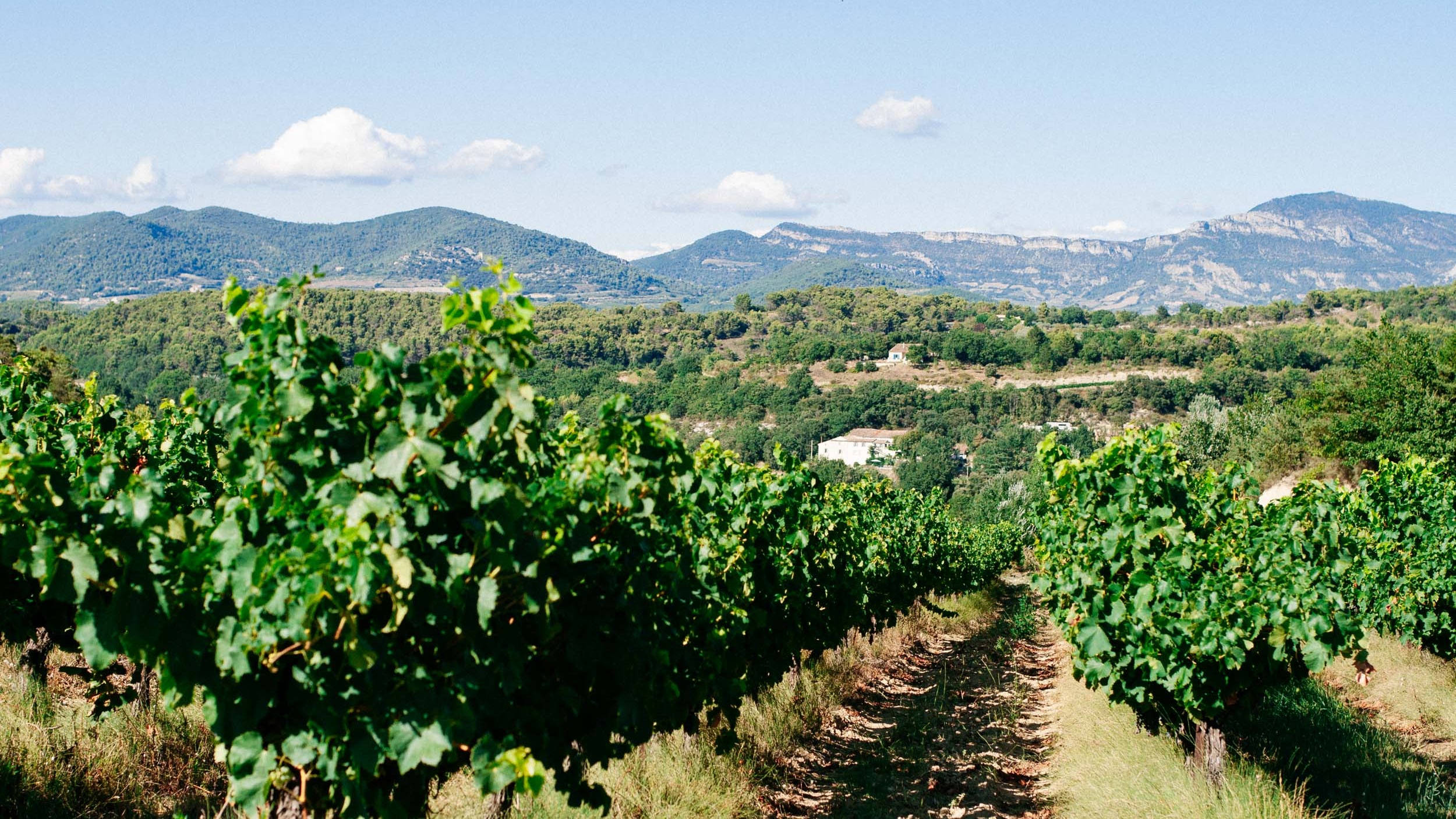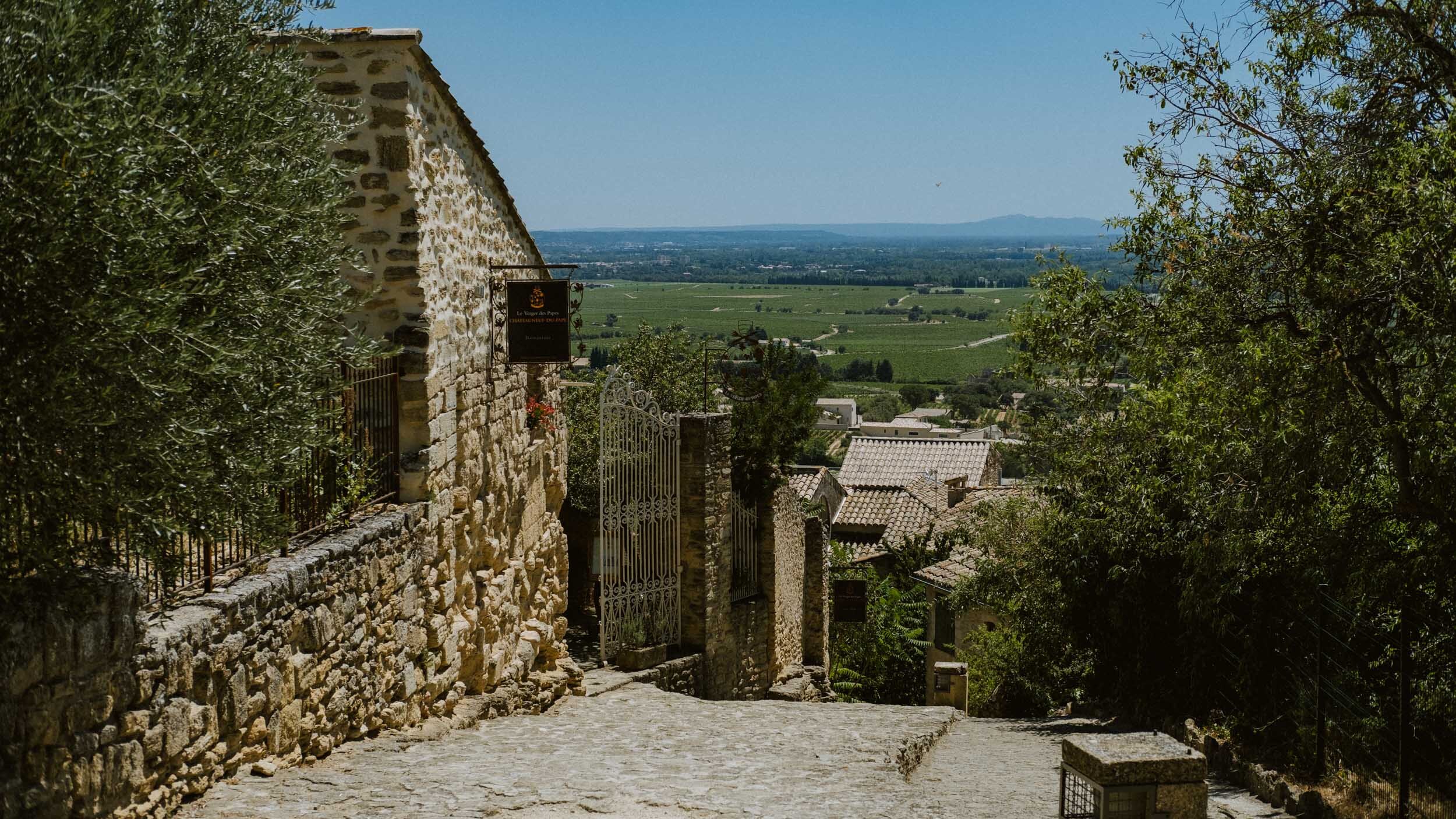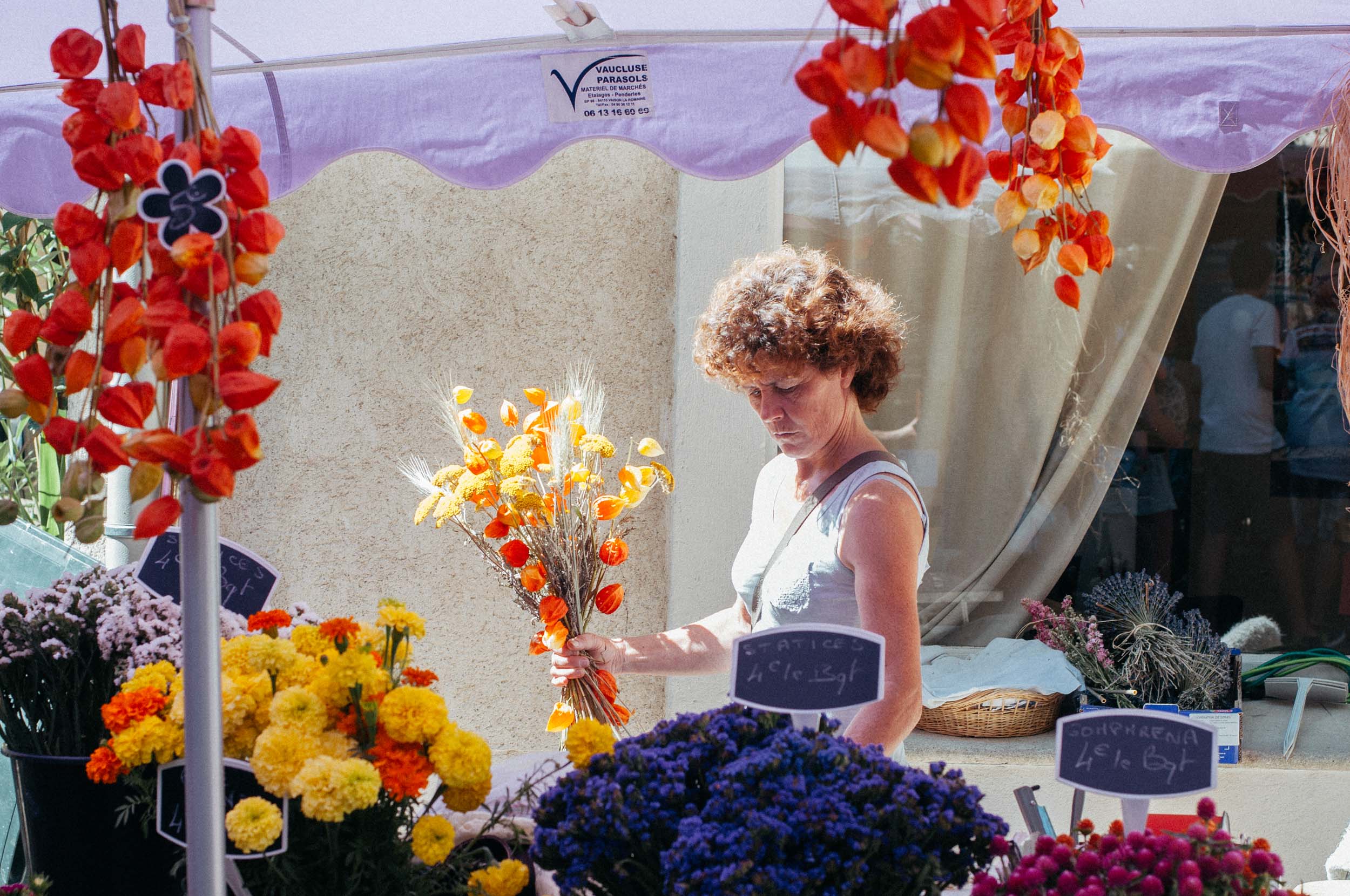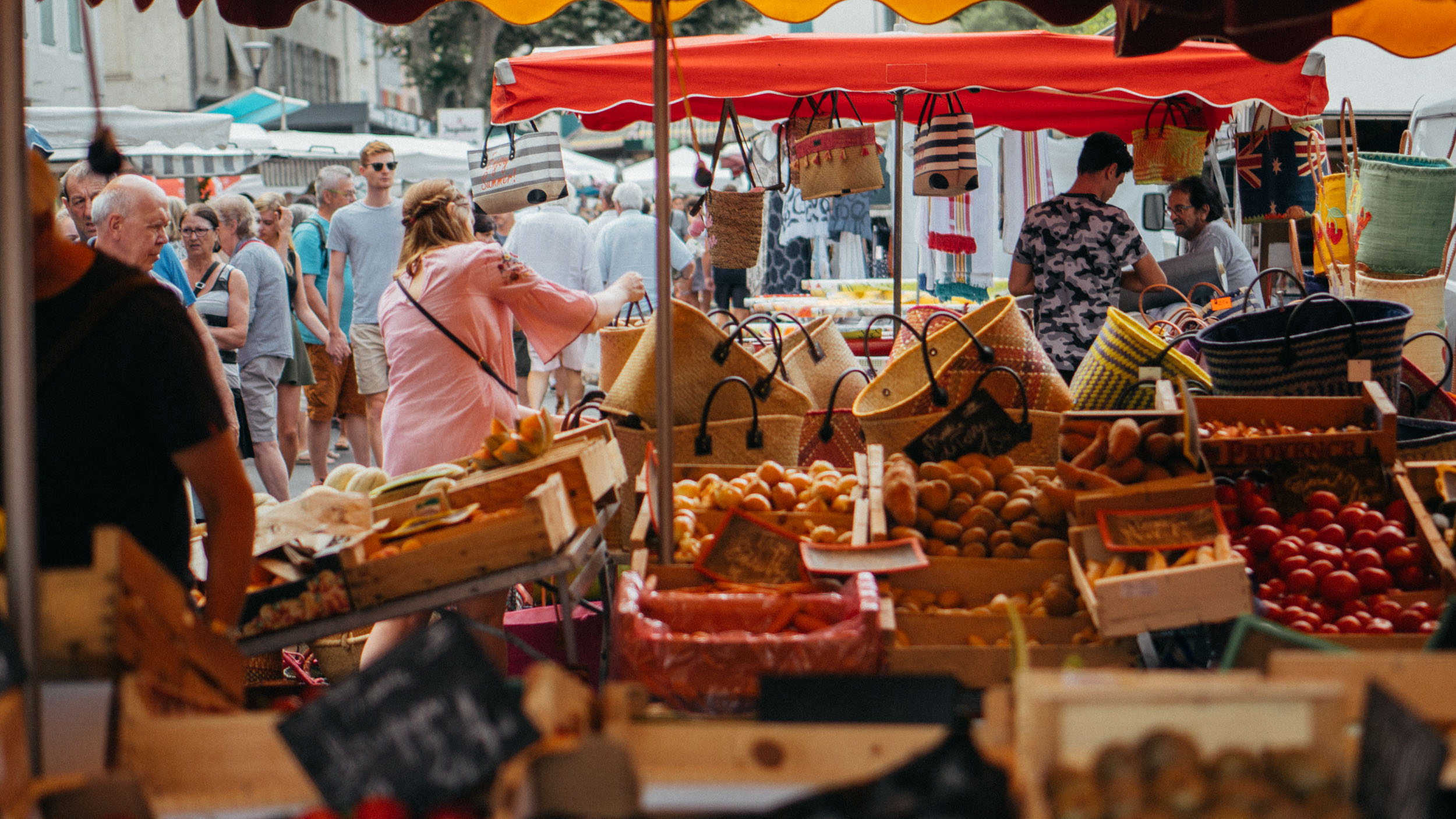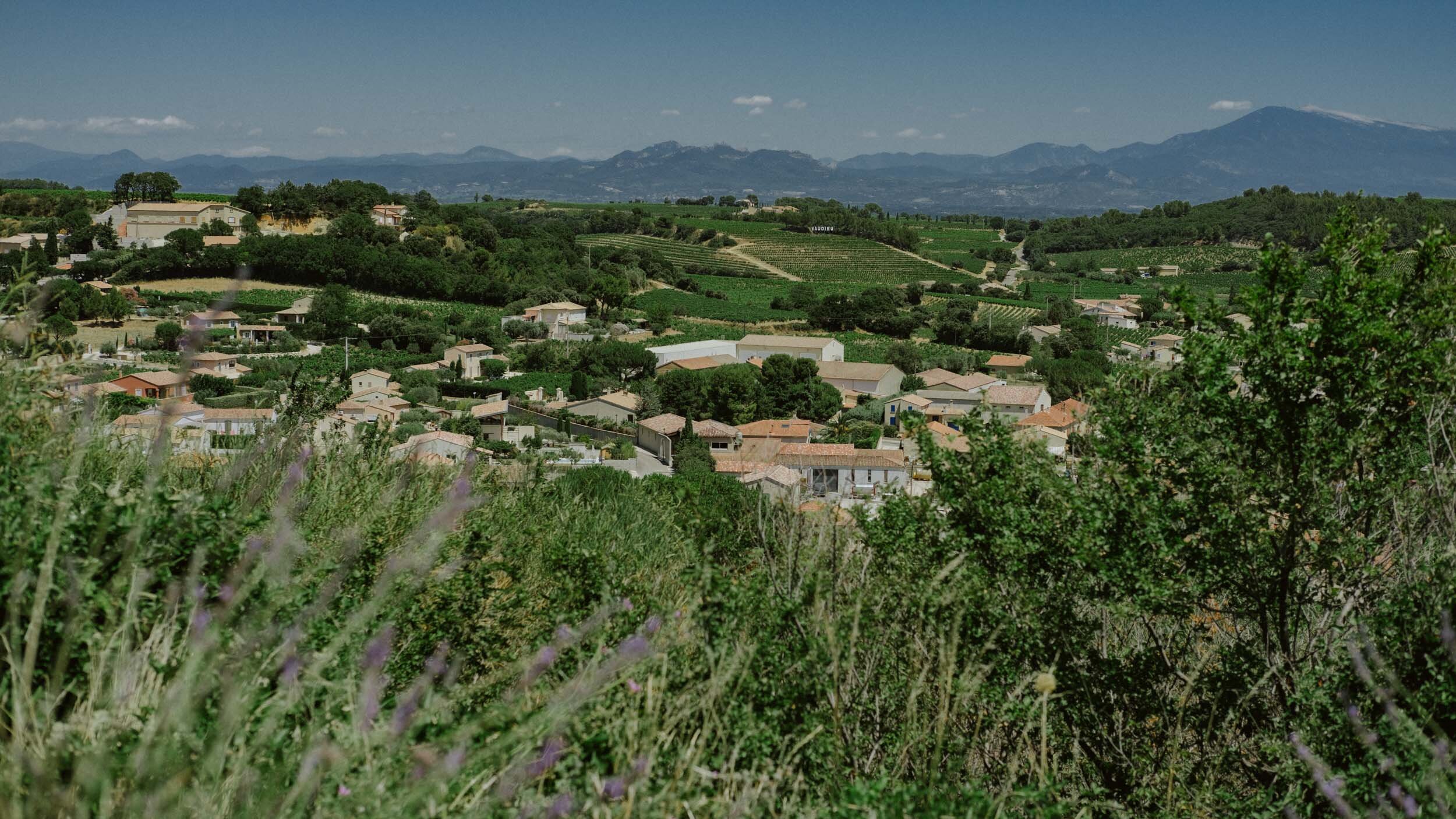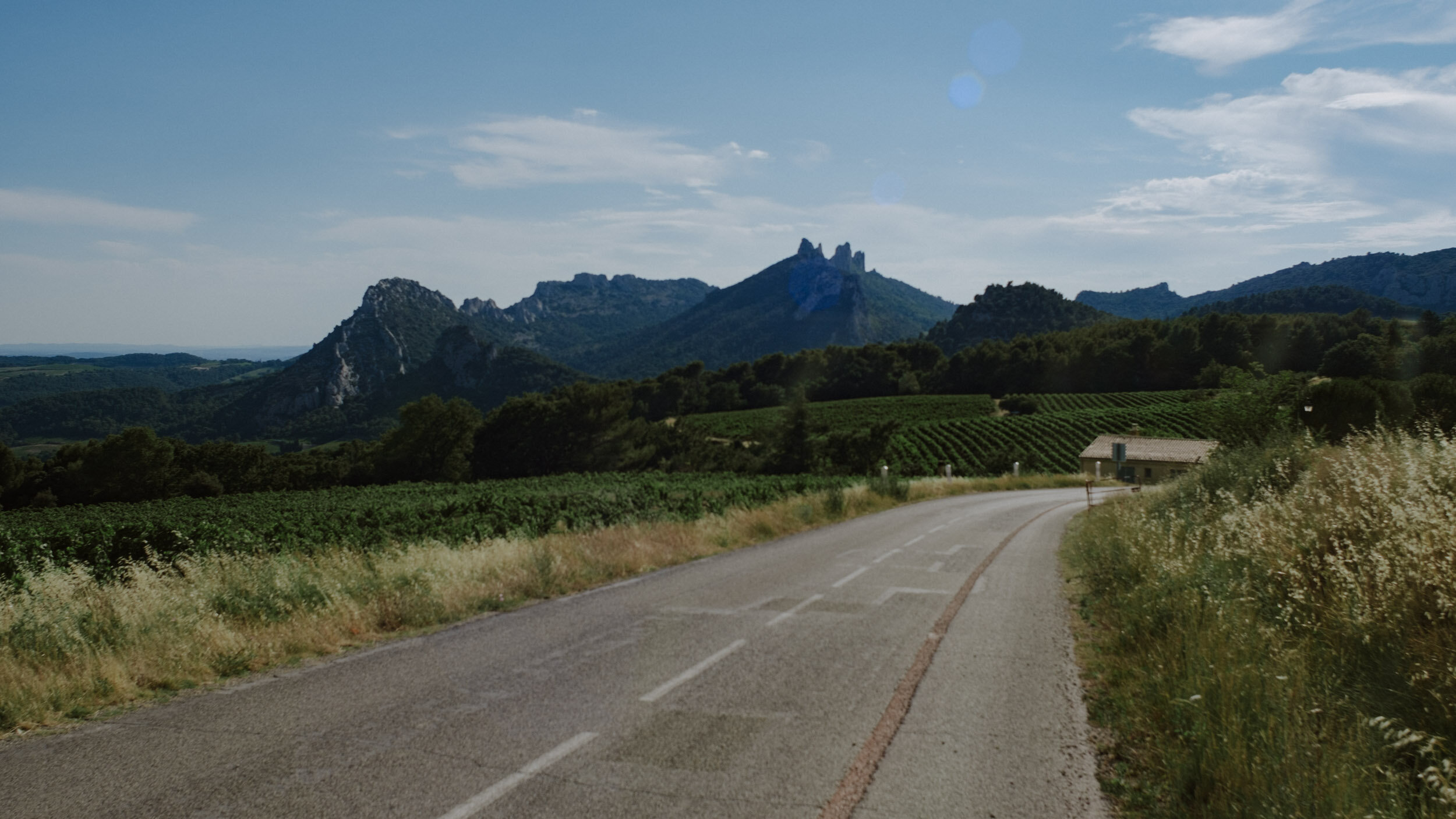The Real Provence
Its true that if you want a decent cocktail somewhere like the Hotel de Paris, Monaco might be your best bet; and if you`re in the market for a €6m house (who isn’t) then as I write Peter Mayle`s place in the Luberon has just come on the market. But if you`re looking for the “vrai” Provencal experience rather than the glitz, then our “coin” – the Vaucluse – delivers in spades. To locate you, we are the most northerly part of Provence, with Mont Ventoux and the city of Avignon our most famous landmarks.
The mountain, known to the French as the “the giant” dominates the landscape, at 1900m it towers above the plain and appears to be snow capped in all seasons though in reality the summit is made up of a white limestone shingle that just looks like snow from down below. For the cyclist the ascent has iconic meaning – it’s the zenith of many cyclists riding ambitions every one of whom follows in the footsteps of the Tour de France greats – Eddie Merckx, Contador, Chris Froome. We are constantly surprised how guests with only moderate fitness levels are inspired to conquer the 21kms route. For Brits there is the added poignancy of the Tom Simpson memorial – Tom was England’s only serious Tour de France contender, he died of a heart attack on the mountain in the 1967 race. There is a bizarre – but moving nonetheless – tradition of “leaving something for Tom”, an empty energiser can for example, so that at the end of the season the memorial resembles a giant recycling plant.
On days when the mountain feels like too much hard work cyclists and walkers should head for the Dentelles de Montmirail, my favourite landscape of them all, around 20 miles of craggy limestone peaks rising majestically from hills at around 500m. This is truly stunning terrain, I once got held up for nearly an hour behind five brand new Ferraris on a photo shoot – its that sort of “film set” country with its terraced vineyards, olive and fruit trees and dramatic cliffs. In the centre is the Abbaye Sainte Madeleine de Barroux, a working Benedictine monastery where the curious can drop in 6 times a day, from 3am to listen to the monks’s service with it’s Gregorian chants. Not far away is a shop where they produce and sell the most delicious olive and walnut bread and press their own brand of olive oil.
For the dedicated foodie this is paradise indeed. The great Provencal markets of Carpentras, Vaison la Romain, Nyons and Sorgue present a visual and sensory feast – locally produced fare is what they are all about and our catering is strictly tied to their seasonal calendar. Starting with the Asparagus season in the first days of spring and progressing through strawberries ( the famous Carpentras variety), cherries, Cavaillon melons, spring lamb from Sault, and onto winter pumpkins, truffles, ceps and girasol mushrooms and those fat juicy pomegranates we use to stuff guinea fowl. Restaurants are no less enticing. The mountain attracts serious hunting sport from local farmers and much of the produce ends up on the tables of our favourite places. One such is Entrechaux`s St.Hubert, a restaurant that has been in the same family – the Mourets – since the 1920`s. The family are delightful – in the Second World War they ran the local resistance from the restaurant here. Game and seafood is the house speciality. As I write the menu “formule” at just €38, a 4 course extravaganza plus amuse bouche, features their legendary “Civet de Sanglier” (wild bore casserole). This is genuine trencherman stuff, served in a gigantic copper saucepan at a side table. When you’ve fought your way through the huge serving they help you to and believe me this is super rich, thickened with the pig`s blood – there are two identical helpings left in the pot just in case you’re feeling peckish.
And to wash all this down with – why, in my view, the best wines in the world. The great American wine critic Robert Parker described Rhone wines as delivering “the best quality/value equation of any fine wine region in the world” He isn’t wrong. Their reputation is based on robust spicy Grenache based reds and peppery violet scented Syrahs but there are also the summer fruit laden Tavel rosés, the fragrant viogniers and the almond and stone fruit white Chateauneufs that rarely travel outside the region. The latter village is a must see destination for the visitor: The centre of an often Mistral wind-swept, undulating plateau next to the Rhone the 300 + vignerons here fashion sublime, hedonistic wines – for sipping and contemplation rather than quaffing. The Chateauneuf brand is justifiably famous worldwide but the village itself is anything but affected, it’s an agricultural village where you are more likely to see tractors and trailers than tourist buses. They are however not without a quirky side: In 1954 they passed a law refusing to allow flying saucers (“cigares volontes”), a topical global concern to land and disturb the vineyards. Apparently the law is still in place! All part of the Provencal charm…





